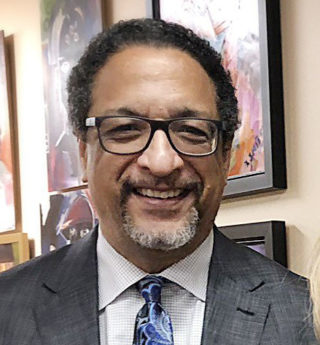HOME | ABOUT US | MEDIA KIT | CONTACT US | INQUIRE
HOME | ABOUT US | MEDIA KIT | CONTACT US | INQUIRE
Clyde McQueen is the chief executive officer for the Full Employment Council in Kansas City, which provides job-training services and programs to connect skilled workers with employers.
Q. The employment world has changed a great deal since we last spoke in March, with nearly 41 million people now jobless as a result of COVID-19 business shutdowns. What have the biggest impacts been, from your perspective?
 A. One of the biggest is the utilization of technology, the virtual platforms for training. May of the schools lack the classroom time, and we still don’t know if they’re going to fully reopen in the fall. That has crated a need for a lot of online training platforms, which frankly we had not been that engaged with prior to COVID—many of the job seekers and the public work-force system as a whole had preferred face to face contact. That will definitely change going forward. There has been much more willingness on the part of employers and job seekers to adopt and use these efforts. With that, we’ve been able to line up training opportunities for people, doing virtual career fairs, having sessions where employers are interviewing candidates on line making job offers online. That has been the No. 1 pivot the public work-force system has had to make.
A. One of the biggest is the utilization of technology, the virtual platforms for training. May of the schools lack the classroom time, and we still don’t know if they’re going to fully reopen in the fall. That has crated a need for a lot of online training platforms, which frankly we had not been that engaged with prior to COVID—many of the job seekers and the public work-force system as a whole had preferred face to face contact. That will definitely change going forward. There has been much more willingness on the part of employers and job seekers to adopt and use these efforts. With that, we’ve been able to line up training opportunities for people, doing virtual career fairs, having sessions where employers are interviewing candidates on line making job offers online. That has been the No. 1 pivot the public work-force system has had to make.
Q. How will that continue to change the path for workers to improve their skill sets?
A. The unemployment insurance system was already an online platform, so this puts the work-force system in a more flexible, 21st-century model. When things do open up, this platform, the training , the interviews and the job placements, all will be a basic component of our business model. We’ll be that way at least 50-50, whereas before it was less than 1 percent that approach.
Q. That will imply some changes in the way people connect on-line, won’t it?
A. One thing does become evident: in urban communities like Kansas City, even in smaller cities around Jackson, Clay and Platte counties, the whole issue of Internet accessibility will be a key strategic priority. It’s very hard to access these platforms if you do not have that IT infrastructure. From a strategic aspect in work-force planning, we’re going to have to make sure people also have better education with online platforms and the type information you should be putting out there, the risk exposure when doing that. We want to make sure people are familiar with that and understand what should and should not be put on the Internet.
Q. What’s your concern about duration of unemployment and the potential for losing certain worker skills or other effects as this drags on?
A. The one thing I don’t think most people understand, small business is at minimum 60 to 70 percent of the economy. They have to have the ability to finance payroll, not just to sustain that, but to pay back those PPP loans or other loans, and that’s related to the ability of people to buy goods and services from small business.
Q. That’ll be a challenge with nearly a fourth of the work force not drawing a paycheck, trying to cover basic expenses with unemployment assistance.
A. Absolutely There is a distinct relationship between the financial ability of individuals of all income strata in our region and the ability of small business to come back. Without demand, those employers are not about to hire people. Those unemployed don’t have the resources, in terms of income, to purchase from small business, and then the cycle will be extended. Even if we skill people up, there issue with the demand side is on small business to bring them back. There are companies reopening, but not necessarily bringing back their entire labor force. These two economic realities are linked directly to each other.